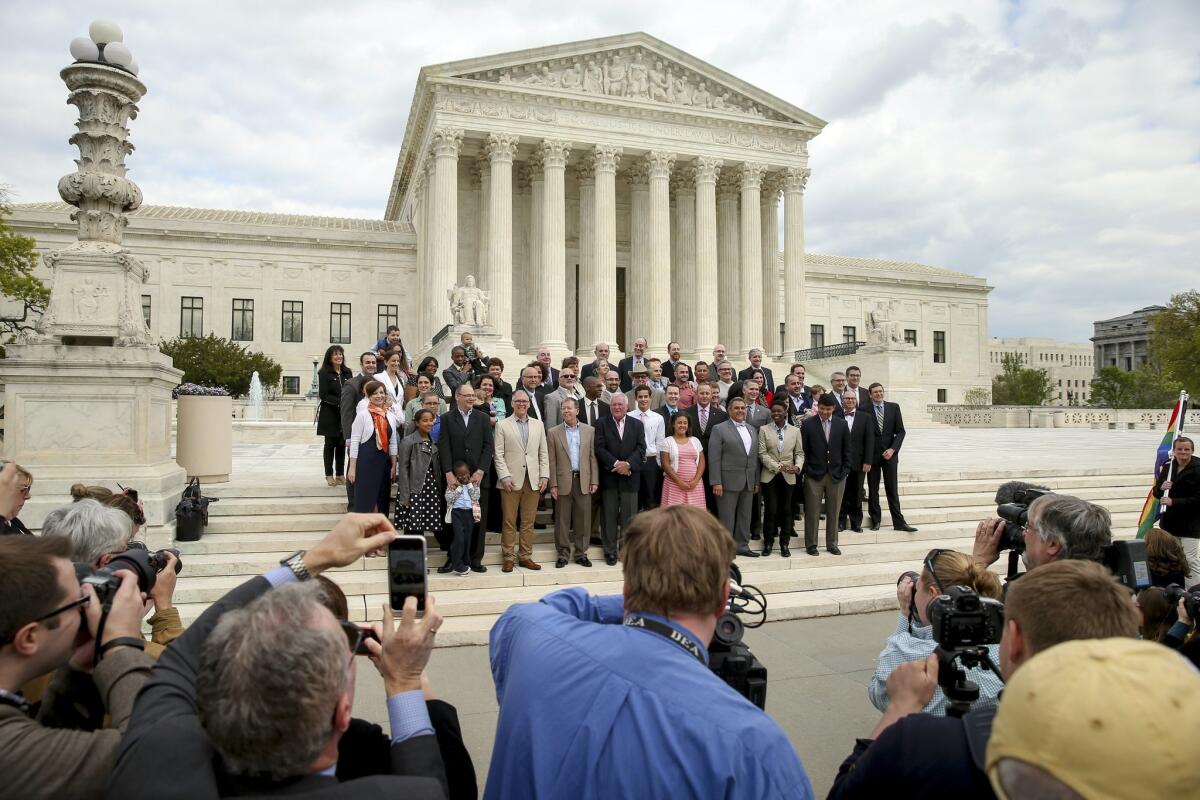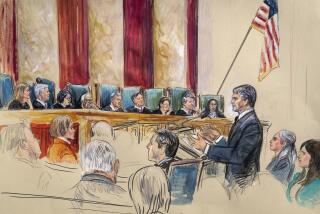Editorial: The constitutional argument for same-sex marriage

For some time the U.S. Supreme Court has been “leading from behind” on same-sex marriage, allowing lower court decisions to transform the legal and social landscape in large parts of the country without weighing in itself. But now the court has seized the initiative again, and we vehemently hope that it will rule quickly and unequivocally that the 14th Amendment requires states to issue marriage licenses to same-sex couples.
Tuesday’s oral arguments will center on the 14th Amendment, which prohibits states from depriving any person of “liberty” without due process of law. It also requires that states guarantee “equal protection of the laws.” The Supreme Court long has interpreted “liberty” to encompass much more than freedom from physical restraint; it also has recognized that some liberties are so fundamental that no possible legal process could justify their deprivation.
In 1967, when it struck down state laws banning interracial marriage, the court cited both of these provisions. Chief Justice Earl Warren wrote that Virginia’s “anti-miscegenation” law violated the equal protection clause because it involved “invidious racial discrimination.” It offended the due process clause because the “freedom to marry has long been recognized as one of the vital personal rights essential to the orderly pursuit of happiness by free men.”
The same considerations argue for a decision striking down bans on same-sex marriage. Although the 14th Amendment was primarily intended to secure legal equality for freed slaves, its guarantees are couched in general terms that can accommodate new social circumstances. Thus the court has used the equal protection clause to uproot gender discrimination as well as racial discrimination, and the clause is equally applicable to discrimination on the basis of sexual orientation. The court should interpret a constitutional “freedom to marry” in light of the increasing realization that marriage includes loving, same-sex couples.
Ironically, changes in public attitudes are being offered as a reason for the court not to act. In the ruling that the justices will review, Judge Jeffrey Sutton wrote: “This is a case about change — and how best to handle it under the U.S. Constitution. From the vantage point of 2014, it would now seem, the question is not whether American law will allow gay couples to marry; it is when and how that will happen.” Sutton suggested that “state democratic processes” rather than the courts should guide that change.
We disagree. When constitutional rights are being denied, the Supreme Court can’t remain on the sidelines. And relying on the political process to vindicate such rights will inevitably leave some Americans unprotected. Changes in attitudes led to the repeal of several anti-miscegenation laws after World War II, but 16 states still had such laws in 1967 when the court ruled. The only sure way to achieve marriage equality nationwide is for the court to rule that it is commanded by the Constitution.
Follow the Opinion section on Twitter @latimesopinion and Facebook
More to Read
Start your day right
Sign up for Essential California for news, features and recommendations from the L.A. Times and beyond in your inbox six days a week.
You may occasionally receive promotional content from the Los Angeles Times.






